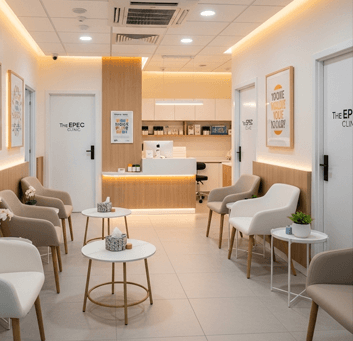Depression Treatment - Assessments
- Author
- May 19, 2025
- 2 min read
Updated: Jul 1, 2025

Assessment of Depression
The assessment of depression involves a structured process that helps clinicians accurately diagnose the disorder, understand its severity, and plan treatment.
1. Clinical Interview
Conducted by a mental health professional (psychologist, psychiatrist, etc.).
Covers:
Current symptoms (e.g., sadness, hopelessness, fatigue, sleep issues).
Duration and severity.
Medical and psychiatric history.
Family history of mental illness.
Social, occupational, and relationship functioning.
Risk of self-harm or suicide.
2. Standardized Depression Scales
These are questionnaires used to quantify the severity of depression and track changes over time:
Beck Depression Inventory (BDI)
Patient Health Questionnaire-9 (PHQ-9)
Hamilton Depression Rating Scale (HDRS)
Zung Self-Rating Depression Scale
3. Differential Diagnosis
Rule out other medical conditions (e.g., thyroid issues, anemia).
Consider other psychiatric disorders (e.g., bipolar disorder, anxiety, PTSD).
Substance use screening.
Treatment of Depression
Treatment depends on the severity (mild, moderate, severe), the individual’s history, and personal preference.
1. Psychotherapy (Talk Therapy)
Cognitive Behavioral Therapy (CBT):
Helps patients identify and change negative thought patterns and behaviors.
Interpersonal Therapy (IPT):
Focuses on improving personal relationships and communication.
Psychodynamic Therapy:
Explores unconscious patterns and past experiences affecting current behavior.
Mindfulness-Based Cognitive Therapy (MBCT):
Combines CBT with mindfulness strategies to prevent relapse.
2. Medication
Prescribed by a psychiatrist or primary care physician.
Common antidepressants:
SSRIs (e.g., fluoxetine, sertraline)
SNRIs (e.g., venlafaxine, duloxetine)
Tricyclic antidepressants (TCAs) and MAOIs (used less often due to side effects)
Medication effectiveness can take 4–6 weeks; monitoring is essential.
3. Lifestyle and Supportive Interventions
Exercise, sleep hygiene, and nutrition improvements.
Social support and peer groups.
Stress management techniques (e.g., relaxation, meditation).
4. Advanced Treatments for Severe Depression
Electroconvulsive Therapy (ECT):
Effective for treatment-resistant or severe depression.
Transcranial Magnetic Stimulation (TMS):
Non-invasive brain stimulation.
Ketamine or Esketamine:
Fast-acting medications used in controlled settings.
Monitoring and Follow-Up
Regular follow-up sessions to monitor progress.
Adjustments to therapy or medication as needed.
Maintenance therapy to prevent relapse.




Comments